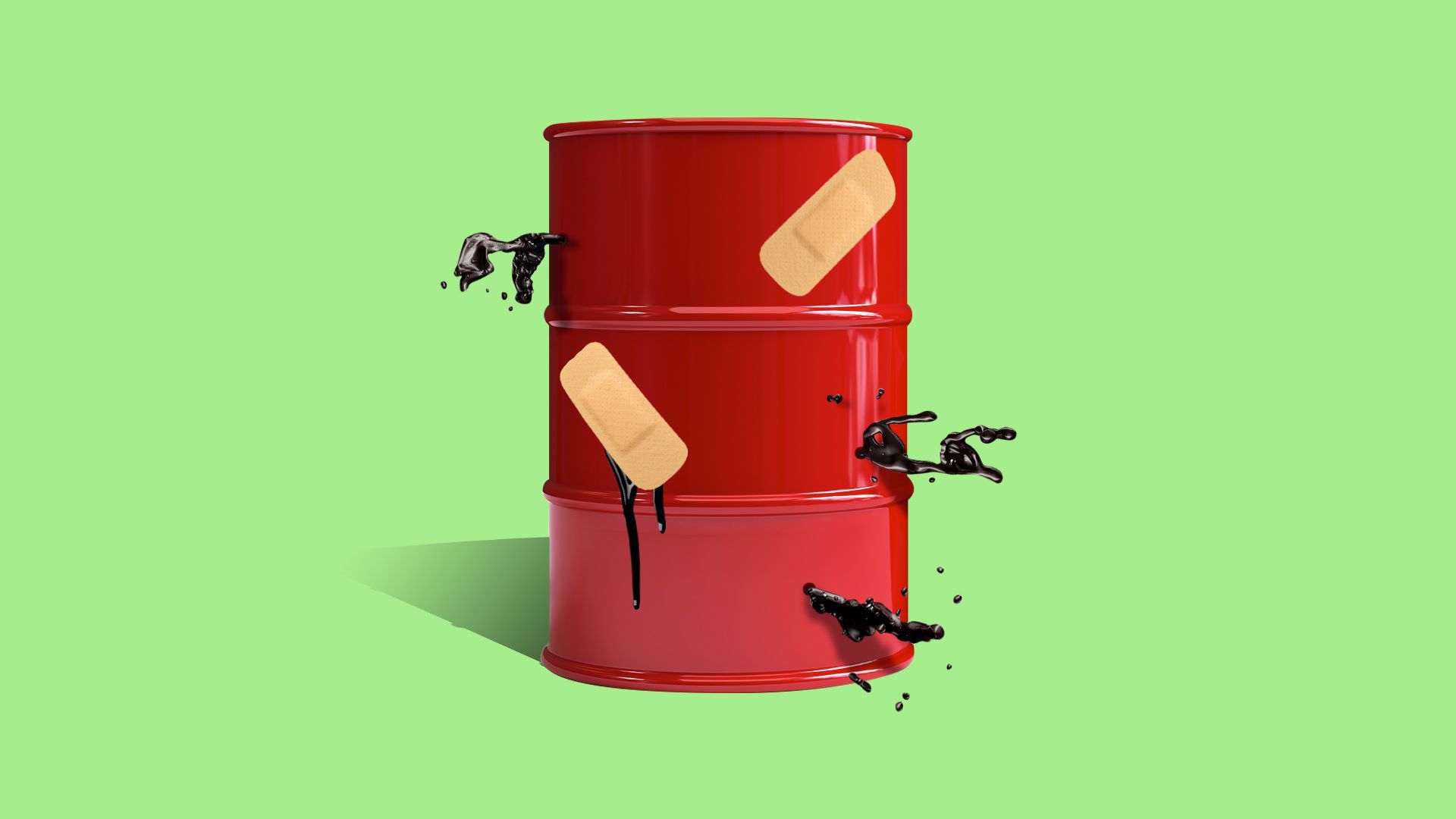Coronavirus surge punctures oil's recovery
Add Axios as your preferred source to
see more of our stories on Google.

Illustration: Aïda Amer/Axios
The growth of coronavirus cases is "casting a shadow" over oil's recovery despite the partial demand revival and supply cuts that have considerably tightened the market in recent months, the International Energy Agency said Friday.
Why it matters: IEA's monthly report confirms what analysts have seen coming for a long time: Failure to contain the virus is a huge threat to the market rebound that has seen prices grow, but remain at a perilous level for many companies.
- Those fears are now being realized. In particular, the surge of cases in the U.S., the world's largest oil consumer, is consequential for the global market.
- The price recovery has largely stalled over the last month and prices are falling Friday morning as the market absorbs the IEA analysis and glum news about the pandemic, which threatens the demand comeback.
- Friday morning, Brent was trading around $42.19 and WTI at $39.40.
What they're saying: "The market started realizing what the impact of the continuously rising COVID-19 cases may be for the U.S. and its oil demand and corrected gains of previous days," Rystad Energy analyst Louise Dickson said in a note.
What's new: IEA notes they have reduced their demand expectations in several regions due to rising cases and "the decision by several states to freeze or roll back the easing of lockdown measures."
- "Similar reductions apply to Brazil, Russia and Saudi Arabia, among other countries," they write.
By the numbers: With the caveat that things are fluid, IEA currently estimates that full-year oil demand this year will be 7.9 million barrels per day below 2019 levels.
- That's a slightly smaller collapse than they previously projected, but that's not a statement about recovery going forward, but instead a reflection that the second-quarter decline was slightly less than expected.
- The report also takes stock of the remarkable decline in global production that has tightened the market. Global supply in June was at its lowest level in nine years.
- "Robust compliance with the OPEC+ output deal and steep declines from other producers, led by the United States and Canada, has cut world oil output by nearly 14 [million bpd] since April," IEA said.
The bottom line: "While the oil market has undoubtedly made progress since 'Black April', the large, and in some countries, accelerating number of COVID-19 cases is a disturbing reminder that the pandemic is not under control and the risk to our market outlook is almost certainly to the downside," IEA said.
